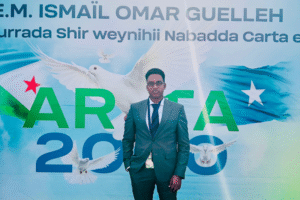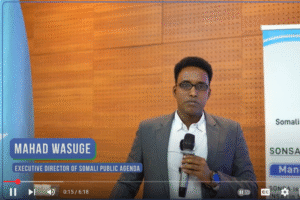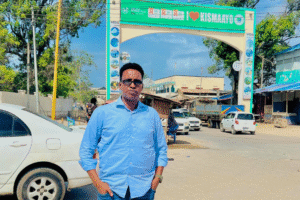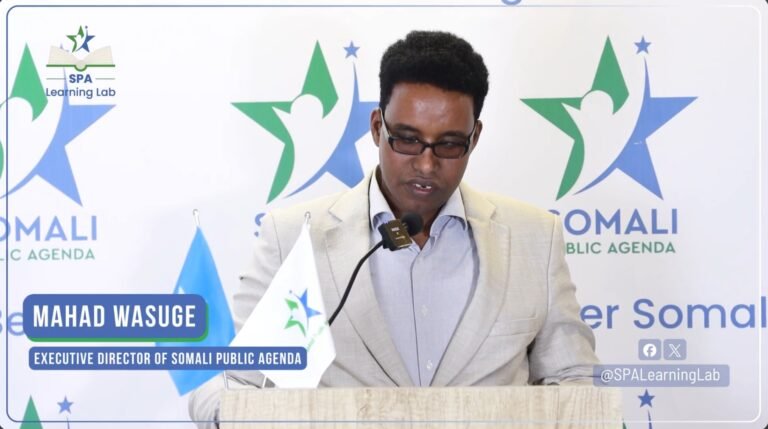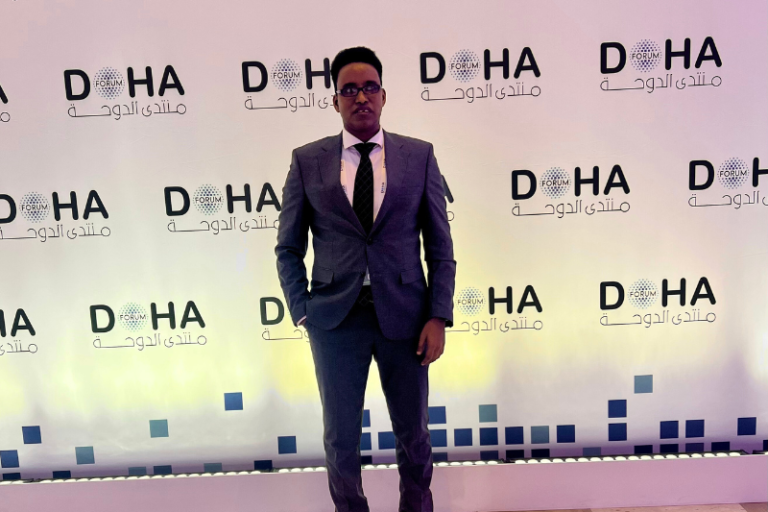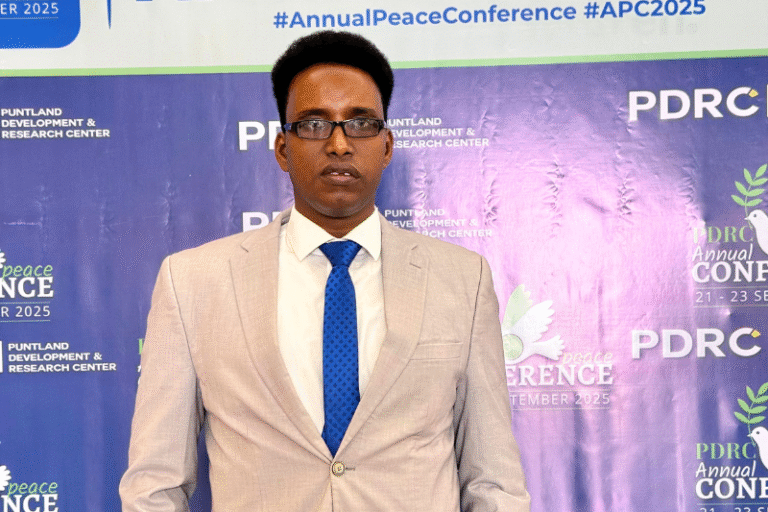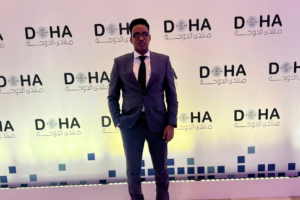
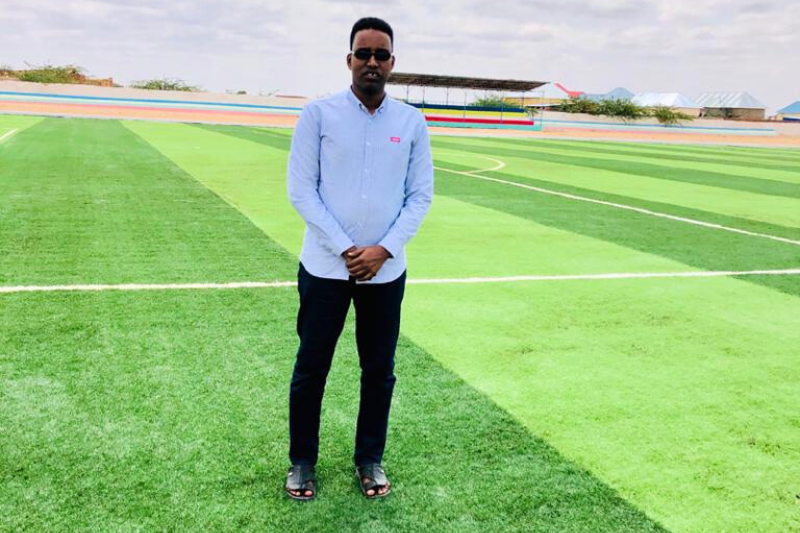
On 19 July 2020, I travelled to Dhusamareb, the capital of Galmudug State, for Somali Public Agenda study on Galmudug reconciliation process. It was my first trip to the famous old town. In the past, I visited several Galmudug districts, but access to Dhusamareb was not possible at that time due to the presence of Ahlu Sunna Wal Jameeca (ASWJ), which was at loggerheads with the Galmudug administration then based in Adaado.
My trip coincided with a conference between the leaders of the Federal Government of Somalia and the Federal Member States on the upcoming federal elections. The security was tight, and there were several checkpoints from the airport to the town in close distances. At the first checkpoint, we were asked a guarantor before entering the city, a measure that signals how security was beefed up.
For the one week I stayed in Dhusamareb, it was a little Mogadishu. Each of the six presidents (one federal and five FMS presidents), as well as the prime minister (recently removed by the House of the People of the Federal Parliament in a controversial no-confidence vote) at the meeting, had a large number of delegates. Sadly, all these were mere observers. Only the seven leaders were discussing the election modality(ies) while over one thousand delegates were present in Dhusamareb.
In addition to these delegates, there were a number of politicians (some of them uninvited) and civil society members who were in Dhusamareb. Among the civil society actors were 15-member well-respected members who spent more than a week in Dhusamareb, met with the leaders separately, and pressured them to not leave without a consensus.
The civil society arranged an off-the-record open discussion on elections in one evening. More than the invited participants gathered in the hall. The number of people who attended the discussion was an indication of how the leaders of the FGS and FMS closed the space for dialogue. Policymakers and civil society actors who participated in the forum presented different views and suggestions for the upcoming national election. How the seven leaders closed their doors and did not listen to those good pieces of advice is worrying.
The people in Dhusamareb owe a huge credit for warmly welcoming the delegates. They vacated their houses to accommodate the over 1,000 deputies. Besides that, different clans constituting Galmudug state had contributed camels to share the burden with the hosting city.
While at the town, I met with several friends (some of whom currently work for the government). I also had the chance to meet and chat with Yusuf Garaad, a prominent journalist, and politician, and Somalia’s immediate former minister of foreign affairs and also ambassador to the UN. He studied his elementary school in Buulaburte, my home town. We talked about mutual friends from Buulaburte and current politicians who were born or studied in Buulaburte.
At nights, my SPA colleague, a former Madarasa-mate and friend from Buulaburte, and I used to have our dinner in a small restaurant near the main street. Cambuulo and camel milk was our dinner choice every night. The restaurant had old glasses for the milk. This made me remember the glasses I used to use for drinking many years ago.
I spent most of my time in Beder Hotel, Midmimo restaurant (where most politicians and political advisors were staying or coming), and in between. I felt that these hotels do not represent the town. So, I asked a friend, the city’s very own – Abdikasim Moalin Ahmed – to give me a tour of the city before I travel back to Mogadishu. That tour was eye-opening to me.
Since it was the provincial capital of Galgaduud region, Dhusamareb has many public buildings (a friend who accompanied us in the tour said there are 63 public lands in the town). Almost each government institution had a branch in the town. Some of the buildings I saw included the branches of the central bank, the public hospital, the elementary, intermediate, and secondary schools, the ministries of energy and water, public works, and education.
We visited the public hospital. It has a section equipped for COVID-19 control and treatment, but no one was there (staff or patient). We also visited the intermediate and secondary public schools. The secondary school building was also empty, and it badly needed a reconstruction. If the new Galmudug wants to revive public services, rehabilitation of these buildings could be a good starting point. We also visited Dhusamareb stadium recently decorated with the support of the Federal Government of Somalia.
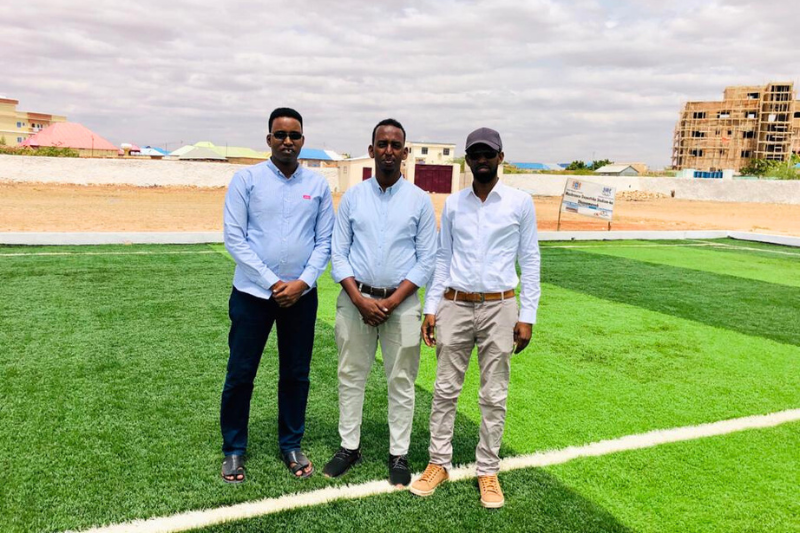
Besides, we visited some camps for government forces. These included the former 21st sector (xerada 21-aad) of the military (now Galmudug presidential palace building is under construction) and the military garrison (xerada gaadiidka). My father used to work for the supply and logistics section of the military forces, and I believe at some point my father spent some of his time in the military garrison in Dhusamareb.
For many years, Dhusamareb was a center for ASWJ. I visited Jaamacatul Raqay, a large mosque, and a teaching space for religious books. I prayed at the mosque and saw the ongoing teachings. It was nostalgic. I was once a student at Bardaha mosque, another Suufi-run mosque, in Beledweyne. I was told that Raqay (tamarind) is a famous tree in Dhusamareb. Ceel Boodcadde (or Boodcadde well) is also another ancient borehole in the city I have visited.
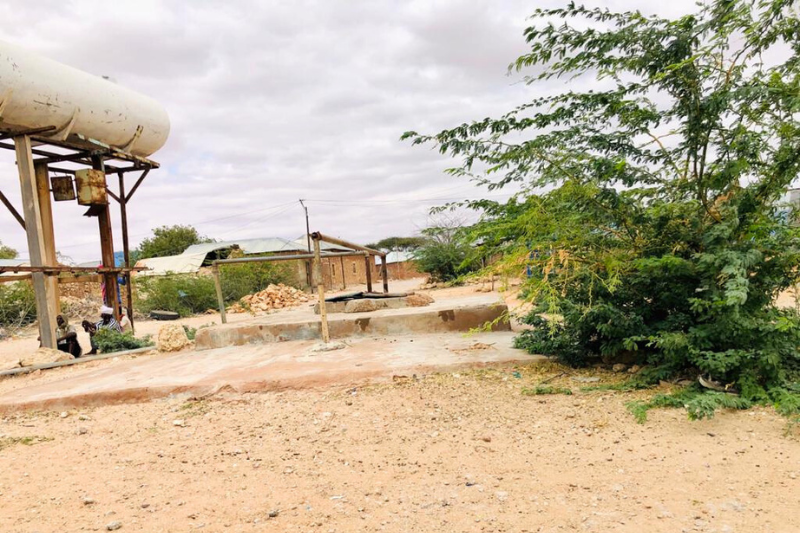
Dhusamareb looks destroyed. Its development efforts are at a rudimentary stage. It needs a town planning as the feeder roads in the villages are not proper. I hope the city maintains its current momentum and attracts investment from the Somalia government, businesses, and international development actors.
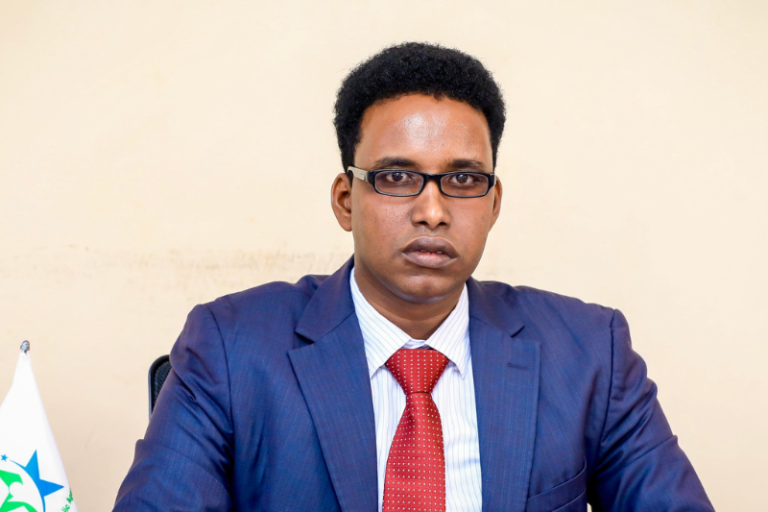
Is a researcher, teacher, podcaster and blogger. His work over the last decade has focused on teaching and researching governance, justice and social services in Somalia.

